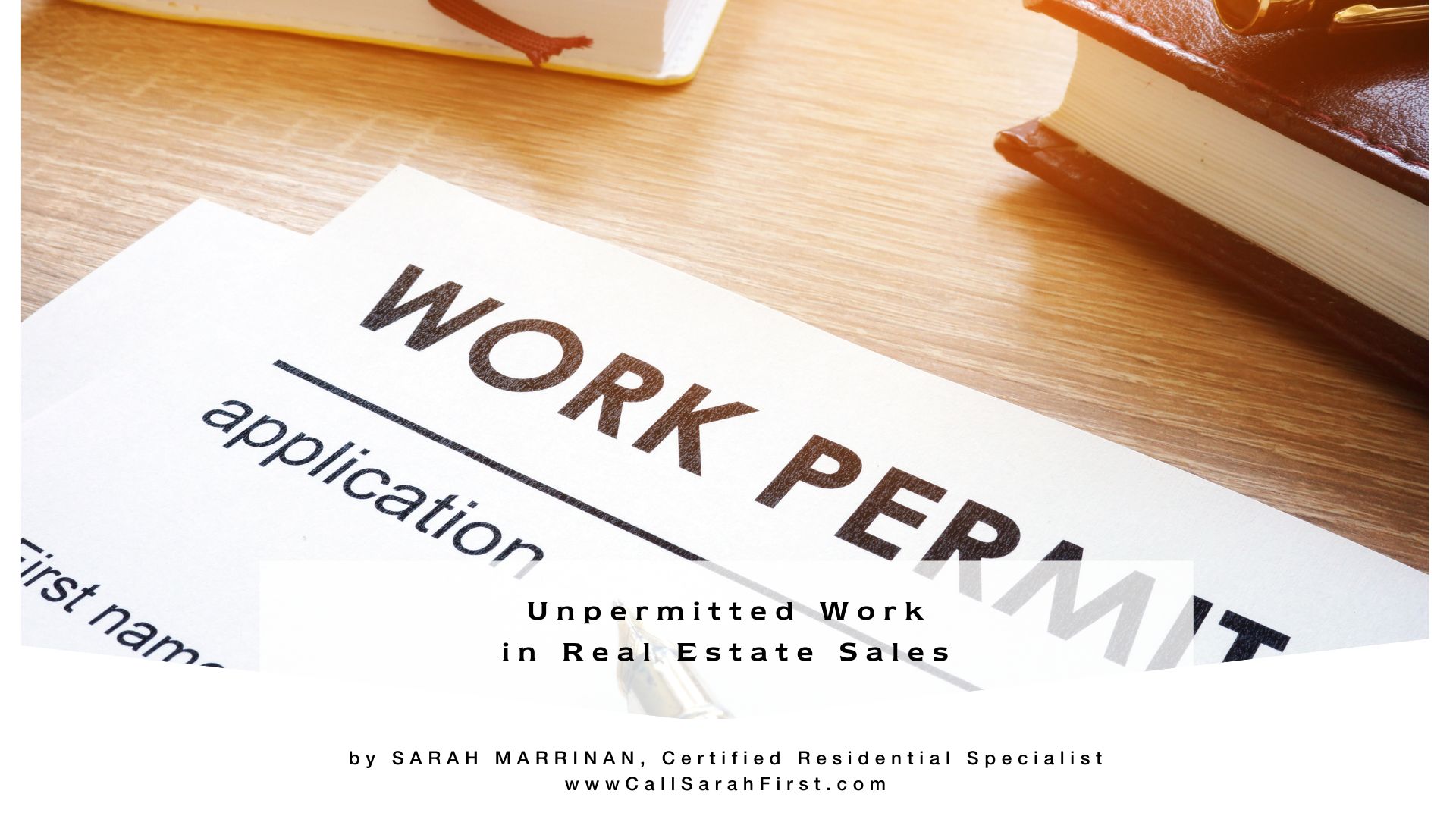Selling a Home with Unpermitted Work
You are legally obligated to disclose all unpermitted work you are aware of, even if it’s from prior owners.
Make sure to communicate everything you know about unpermitted work on your property. Withhold information from potential buyers, and you’ve got a potential lawsuit on your hands. If unpermitted work was disclosed to the buyer before the close of escrow the buyer is usually responsible for any consequences.
Unpermitted work can affect insurance. “For example, if a new electrical panel was installed, but it is not to code and was not inspected there could be significant insurance ramifications,” says Roberson.
Compared to the potential problems of not having a permit for the work, the process is worthwhile.

Depending on your municipality, city or county, the permit process usually follow these six steps:
- Reach out to your local building office as soon as you anticipate starting a home improvement project. Discuss the project you’re planning and the complexity of the work you plan to do. You might need multiple permits for additions or remodeling, electric, and plumbing.
- If you hired a contractor, consult with them to fill out the permit as completely as you can or have the contractor fill it out. Include drawings and schematics where possible.
- Submit the permit and pay the filing fee. If your permit is approved, you’ll receive an official license. Depending on the complexity of your project, this permit could be approved on the spot, or need additional review.
- You’ll need to have the permit in hand before any work is started. Post the permit on your home or close to where you’re completing your project.
- Depending on where you live and the particular project, you’ll need to contact an inspector to come check out the work. If the inspector recommends changes, they’ll need to visit again to confirm you’ve made them.
- After approval from the inspector and completion of the project, you can remove the displayed permit.
While this process can feel downright painful with some local government operations, the potential law suits or headaches by skipping the permits could be worse!
If you are aware of unpermitted work on your property whether it was work from a previous owner or yourself, here are the two main options when it comes to selling your home.
1) Obtain retroactive permits: Obtaining a retroactive permit can allow you to maintain the value of the home, making for an easier sale down the line.
Goto the city or county and obtain a permit retroactively on already completed projects.
In some cases, inspectors will simply ask you to open the walls of some construction. In others, they might ask you to tear down and rebuild portions based on their feedback.
If you are obtaining a permit for work of a previous owner, the city or county may be more lenient with you. They may not charge you for any penalties a retroactive permit incurs and might give you more flexible deadlines to bring the work up to code.
The cost associated with retroactive permitting will depend on the scope and value of the construction. If you believe the work is flawed, before going to the city to obtain a permit, you might want to hire a contractor to examine the existing work and give you an estimate of the cost of bringing it up to code.
The decision to obtain retroactive permits should be made before you list your home.
2) Disclose the Unpermitted: You are lawfully required to disclose unpermitted work.
Depending on the nature of the unpermitted work, sometimes being as upfront as possible is enough. Make sure buyers know what they’re getting into by disclosing unpermitted work as thoroughly as possible.
When it comes to large-scale unpermitted work, you may have to work with your agent to decide on a discounted price for your listing (even in a hot seller's market) as the new buyer will now assume responsibility for that unpermitted work. The unpermited work should be clearly disclosed in your sale contract and you should seek legal advice before going this route. Even when disclosed, if unpermitted work causes damage to the buyer, they may pursue legal recourse.
Some recommend when valuing a home with unpermitted work that you exclude the unpermitted work from the market value of the home. For example, if you finished a family room in the basement, estimate the value without that additional below ground square footage.
If the work included plumbing, electrical or structural changes, a city could require a buyer to tear everything open and start over with proper permits and licensed professionals or hire engineers if the work is deemed unsafe or unsound. Or worse, if it's an addition and a utility easement is found next to or under the addition, the city or county could ask the new owner to tear down the addition.
Depending on the amount of risk the buyers will assume with the unpermitted work, they might run into problems financing the sale through a bank or getting insurance.
In that case, you might decide to have your agent contact cash buyers and investors that can take on the projects of getting the home up to code.
Always seek legal advice when determining your risk as a buyer or seller of homes with unpermitted renovations or additions.
More info you may be interested in:
Home sellers, have you seen these tips? https://www.callsarahfirst.com/seller-tips/
Home buyers, have you seen these tips?
https://www.callsarahfirst.com/buyer-tips/



